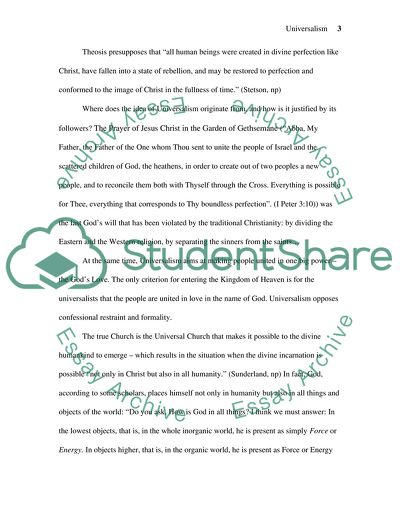Cite this document
(What Is Universalism Essay Example | Topics and Well Written Essays - 2250 words, n.d.)
What Is Universalism Essay Example | Topics and Well Written Essays - 2250 words. Retrieved from https://studentshare.org/religion-and-theology/1725175-spirituality-religion
What Is Universalism Essay Example | Topics and Well Written Essays - 2250 words. Retrieved from https://studentshare.org/religion-and-theology/1725175-spirituality-religion
(What Is Universalism Essay Example | Topics and Well Written Essays - 2250 Words)
What Is Universalism Essay Example | Topics and Well Written Essays - 2250 Words. https://studentshare.org/religion-and-theology/1725175-spirituality-religion.
What Is Universalism Essay Example | Topics and Well Written Essays - 2250 Words. https://studentshare.org/religion-and-theology/1725175-spirituality-religion.
“What Is Universalism Essay Example | Topics and Well Written Essays - 2250 Words”. https://studentshare.org/religion-and-theology/1725175-spirituality-religion.


